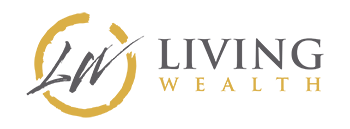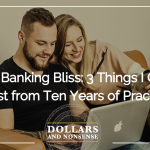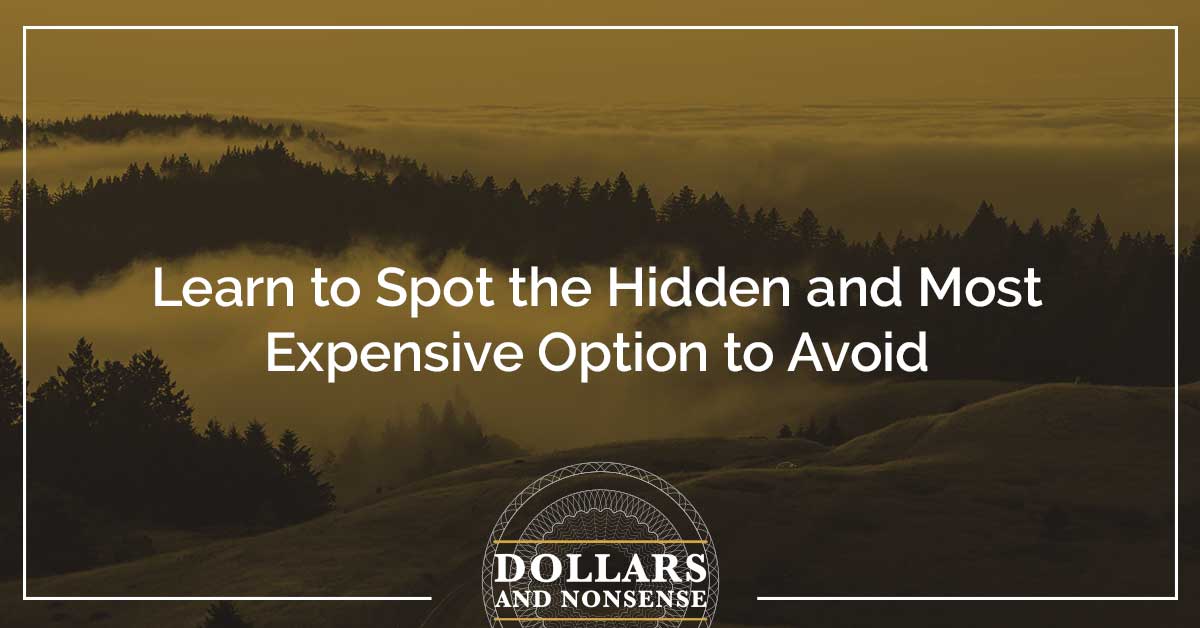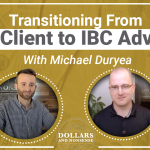In this podcast episode, we provide answers to the most common objections we hear from people that are investigating the Infinite Banking Concept. We love outside-the-box financial strategies to build wealth. These are where you can create generational wealth that does more than merely obtain the average results. After all, the best way to become wealthy is to think differently than the norm and do what some of the wealthiest people use. One of them being IBC.
Our goal with this episode isn’t to convince you to do something. Instead, our goal is to share the questions raised while people and how we answer them so you can make the most informed decision.
Common Objections to Infinite Banking Topics Discussed:
- The only question that’s a dumb question is the one you don’t ask
- Comparing rates of return and common misunderstandings
- What it means to keep your money moving and doing more than one job
- How and why infinite banking is a banking system and not an investment
- Is it a simple get out of debt system or much more?
- When paying for cash is counterproductive to the real goal you’re after
- Is this just a get-rich-quick scheme?
Episode Resources:
- Gain access to our Secret Banking Masterclass now FREE to listeners of the podcast here now
- What is Infinite Banking
- Who was Nelson Nash?
- CREDIT: Episode art background photo by NeONBRAND
Podcast transcript for episode 126: Most Common IBC Objections
Nate: In this episode, we provide answers to the most common objections we hear from people that are investigating the Infinite Banking Concept. She’s Holly and she helps people find financial freedom.
Holly: He’s Nate. He makes sense out of money. This is Dollars and Nonsense. If you follow the herd, you will be slaughtered.
Nate: All right, welcome back to the show everyone. For those of you who are fairly new, I’m sure you’ve figured out that we love the Infinite Banking Concept. We love discussing it, but really we just love outside the box strategies to build wealth, the places that you can build wealth that are just not the way society is going, because we really do believe that if you do what everyone else is doing, you’ll just get average results. And the best way to become wealthy is to think outside the box and do some new strategies. One of them being Infinite Banking.
So today’s episode is going to be focused on some of the most common objections we hear from people who have just started learning about the Infinite Banking Concept. So what are the things that people think of when they just get introduced to IBC, Infinite Banking, that would cause them to push back against it.
But it’s not only the people who are just investigating IBC who might have some sort of questioning or objection or pushback, we’ve also found that some of our clients themselves, they can get caught up in some of these issues and all we’re here to do Holly, really just to provide answers to the objections. In other words, it’s `okay to have an objection. It’s okay to ask questions, especially pressuring questions when you’re trying to investigate a new concept, but we wanted to maybe have an episode where we just discuss, what are the common objections we hear? And then what are the actual real responses? Because most of the objections that we hear are the pushback comes from just general misunderstandings of what IBC really is all about.
Holly: Yeah. And I think that I say all the time, Nate, to clients, the only question that’s a dumb question is the one you don’t ask. So really our goal isn’t to convince you to do something. Our goal is, these are questions we get asked and we title it, maybe objections, but they’re questions that are raised while people are actually trying to understand what is IBC and how does it work? And I think one of the questions we get or why people say they don’t want to do it is that the rate of return is just not high enough.
Nate: Yeah. I think most of you listening have thought this. In fact, even Nelson Nash, when he wrote the book on the concept, he had a little section in there that this is the objection most people have. They’ll say something like, “Well, Nate, this all sounds good, but couldn’t, I get a higher rate of return doing X,” whatever that is, investing in something else and so forth. And so we hear this objection all the time. It’s the most common objection, I believe, for those who decide not to do IBC is they just feel they can get a higher rate of return on their money doing something else. We can answer this in so many different ways, but I would ask you, “Where do we normally go with this? Why is that objection typically, based on a misunderstanding of the concept to begin with?”
Holly: I say the biggest misunderstanding, Nate, is that they are viewing the life insurance policy as an investment, not the Infinite Banking process and the life insurance product as a system you’re putting in place to be able to maybe then go make those investments and use it that way. But it’s actually a system. It’s not an investment, life insurance isn’t an investment. It can’t even be classified as that.
Nate: Yeah, I think you nailed it. That objection typically comes from people who want to push this concept to becoming something it’s not. And so when Nelson Nash created this content, and we’re big promoters of this concept, it’s not hey, invest all your money in whole life insurance policies because it’s the best place for money to sit. That’s not what Infinite Banking is. Infinite Banking is not changing or showing you a new way to make an investment in this new thing. It is a new way to do banking. Hence, the Infinite Banking Concept.
Holly: Concept.
Nate: Rate of return is an investment mentality. In other words, to receive a rate of return, typically you have to put money into something, buy something or put it into an account or something and leave it there for a while. And hopefully, you get a good rate of return due to the appreciation or the cash flow or something like that. And that’s not the goal of Infinite Banking. So I would say the misunderstanding here, in other words, Holly, you and I are not out here saying that the whole life insurance policy itself is going to produce the highest rate of return of any asset that you could ever buy.
Holly: No, absolutely not.
Nate: That’d be stupid, that’d be foolish. That’s not what we’re trying to say. And that’s not the reason people do this. It’s just because they look at me and they’re like, “Wow, I’ve never seen rates of return like this.” That’s not the reason Infinite Banking is such a powerful concept. So in other words, the objection has some validity to it, that if you’re really good at investing in real estate, I bet you that you can earn a very high rate of return inside the real estate. The problem with the objection though, is that it’s based on a misunderstanding of the purpose of Infinite Banking.
In other words, and I think Holly, you brought this up, the policy itself is not the investment. It’s actually the tool we’re going to use to fund our investments.
Holly: Exactly.
Nate: If you want to say that the rate of return is not high enough, we may agree with you, depending on what you’re doing. But what we’d like to do is show you how you can use a policy to fund your other investments to achieve high rates of return and actually make more money because of your ownership of the policy. And so in other words, banking is not investing. Banking is how money flows and we can show you how to use a policy to make your investments in these high rates of return fields that you’d like to work in and actually have a higher return because you financed the investment from a policy as opposed to financing from a bank account.
So all that to say, yeah, the most common objection, the rate of return is not high enough. We’re not even arguing that. The argument has never been, hey, come buy a policy because the rates of returns are out of this world. The idea here is that, hey, everything I do financially can be better if I own the bank and profit from the bank, as opposed to if I use somebody else’s bank accounts to fund everything I’m doing. Any other thoughts on that? I’ve got one more thought and I wanted to see if you-
Holly: Throw it out there, Nate.
Nate: Sure. I remember that in Nelson Nash’s book, he talks about everyone being so focused on the rate of interest, the rate of interest. In other words, the interest rate on a car loan or a mortgage or these other things. And he compared that to the volume of interest. In other words, to Nelson’s mindset, it wasn’t really getting a good interest rate on a mortgage, getting a 3% loan or a 4%… It seemed like a really low interest rate, but the volume of interest you pay on the loan is incredibly high. By volume, we mean hey, if I buy a $300,000 home and borrow at 4%, I may end up paying back the bank a total of 450, 500, 550 of cash flow over that timeframe. So in other words, the volume of interest is hundreds of thousands of dollars, even though the rate of interest is really low. And I bring this up, all I had to say, he focused on the rate of interest versus the volume of interest on a loan period, but what I’m also, have brought into my own thinking, that Infinite Banking is always actually about volume. In other words, the rate of return may not be incredibly high, but the goal is not really to get a high rate of return. The goal is to have the biggest volume of return in your life.
So that same principle, I think, applies to building wealth as opposed to loans. In other words, a lot of people, they may have a few investments here and there that are producing high rates of return, but they’ve got a whole bunch of money that’s not invested in there, that flows through their hands over their lifetime that never earns a single cent, ever. In fact, there’s probably more money that goes through all of our pockets that will never earn anything for us than the small portion we siphon off to make investments with. And what I guess what Infinite Banking is really trying to discuss is that you may not receive a high rate of return in the policy itself, but the volume can be incredible. The amount of money you can make by changing how you bank can result in a huge volume of return, because it’s actually producing a return on money that historically we have never made any money on. It’s making money in a brand new way. That’s why we would call the rate of return infinite to some degree, because you can’t compare it.
In other words, if I make a dollar in a way that I never knew how to make a dollar before, my basis is zero. I’m not comparing rates of return, comparing zero to now earning money. So the technical calculation is infinite. In other words, one divided by zero is infinity. It’s undefined. You can’t define it, but I guess that’s what Infinite Banking is trying to teach people how to do is make money in a different way. So the objection of, Hey, the rate of return is not high enough. Yeah, sure. We’re not trying to argue that the rate of return of a policy is greater than some sort of investment. But what we are saying is you will receive more volume of return, more volume of interest, you’ll earn way more money by owning the banking function, as opposed to delegating that to a conventional bank who’s going to make that volume.
Holly: Yeah. And I think one of the reasons why we don’t think in volume, Nate, is because we haven’t been taught to. Even right now, think about it, we’re in a low interest rate environment. That’s what everybody’s saying. It’s time to buy a house, look at how low these interest rates are. But yet you don’t look at the volume of interest over the long period of time.
Nate: No, you’re not taught to look at volume of interest on your loans. You’re just, hey, look at this little rate, look at this little rate, not how much you’re actually going to pay in real dollar figures or how much you’re going to pay in proportion to the total loan. But the same thing goes for investments. We’re just taught to look at the rate of return, the rate of return, which we’ve done podcasts before saying rate of return is very deceptive to begin with. You can actually lose money and on paper have a positive rate of return. Now we don’t time to go into that necessarily right now, but I’m just saying this whole infatuation with rate of return defeats the purpose, because the goal is not really rate, the goal is volume anyway, no matter what. Hopefully, the high rate of return you receive will produce the highest volume of return as far as real numbers go. But that’s actually not always the case. So the volume of return is what we’re always after. IBC helps with that, that every single dollar you earn, as much as we can, can start earning money for you and still be used to go invest elsewhere if need be.
Announcer: Are you still stuck in insecurity and uncertainty? Do you want to feel like a financial genius and confident about your future? Holly and Nate have prepared something exclusively for Dollars and Nonsense listeners. It’s called The Secret Banking Masterclass. You can gain free access to this course by visiting livingwealth.com/secretbanking. That secret banking, all one word. The course will share with you how the conventional system stacks the deck against you, and exactly how to break free from their system. We believe in challenging the status quo. We believe in defying conventional wealth tools while maintaining traditional values. After all, most of those conventional tools only ever seem to make someone else in the inner circle rich. Visit livingwealth.com/secretbanking. That’s secret banking, all one word. Ease your worry and start your journey towards security today. Visit livingwealth.com/secretbanking. Now back to the great episode with Nate and Holly.
Holly: I get this a lot, Nate. I don’t know about you, a good transition time of, I don’t have any debt. I pay cash for everything.
Nate: Oh yeah, that’s a common one. Absolutely. Yep. So some people think of Infinite Banking as just a simple get out of debt system. I don’t know why they think that. If you’re listening to this and you’ve thought that, maybe you should stop thinking about it that way. But you’re right. Holly, sometimes we’ll speak to someone and say, “Well, it sounds cool, but I don’t have any debt. So what’s the point?” And that comes from a faulty premise of thinking that Infinite Banking is just a get out of debt system. And maybe that’s the promoters, Holly, whether it’s you and me or people like us who have promoted the ability to pay off debt from a policy. And people have equated the system with simply a get out of debt system, but it jumps through a logical curve that doesn’t actually make any sense.
In other words, if the goal of IBC is to not have any debt and thus whenever you practice IBC and you end up with no debt, then the whole system is worthless, I guess, for all of us who have no debt anymore, which is absolutely not true. But I guess that that would be the logical hook. In other words, IBC was never a get out of debt system. That may be part of it for a lot of people is getting out of debt, using your policy and staying out of debt, which we do believe is a good strategy. However, banking is not just removing debt. It’s also who’s going to control the flow of money and who’s going to profit from the flow of money in your life, which is way more than just simply paying off credit card debt and car loans.
Holly: Well, and I think too, Nate, it’s a system and the system is used not just for debt. We have so many clients and we do a lot more. I think even now you would agree with cash flow, increasing or generating cash flow. Even if you pay cash for it, it’s a way to actually keep the cash or the money in the family and not actually just send every dollar you’re paying cash for away from you. So the reality is maybe it’s been taught as it’s a getting out of debt quicker and paying yourself back, but it’s also for those that have no debt to be actually increase their cash flow and to actually use those dollars more than one time.
Nate: Absolutely. In other words, Infinite Banking is all about building wealth, building a capital that you control, building wealth. We like to recapture monthly payments that are walking out the door to help you build wealth. The whole goal is once again, that volume of return. The whole purpose of Infinite Banking is using a system of whole life insurance policies, specifically designed for this purpose, to help us achieve financial freedom and achieve our wealth building goals. For a lot of people that is paying off debt. But this is not a means to an end of paying off debt. Then maybe part of it for your journey with it, especially if you start a process of Infinite Banking and you have debt, that’s just low hanging fruit as a use of the policy, but there’s so many other uses of policies that have nothing to do with debt.
So we hope that that objection doesn’t really come up to play in your mentality. The I have no debt idea, once again, is based on a faulty understanding of what the goal is. The goal is not to be debt-free in a vacuum. The goal is to build wealth, and that may include getting out of debt. There’s also a lot of times debt that we don’t even use the policy to pay off. That happens all the time, especially with the low interest rate environment that we’re in. Right now with banks willing to offer mortgages against your home for less than 3% locked in for 30 years, I don’t think that would be a good focus to stuff hundreds of thousands of dollars. And we’ve talked about that before on this podcast, but there’s so much out there that you could do that’s not paying off a mortgage early.
So all that to say, many times with the low interest rate environment we’re in, we’re not even focusing on paying off debt. We’re focusing on building wealth, making investments, moving money, lending money to our family. We’re focusing on doing a lot of other things that are not just simply paying off debt. We hope that’s not a thought that, hey, if I have no debt, this system… This system sounds good for people who have debt, but what about me? I already pay cash for everything. Well, good. The bank’s making a crap ton of money off you too on all the money that you have. It’s like the Dave Ramsey mentality.
Holly: Give that cash away.
Nate: I’ve heard Ray ask this question many times, I’ve asked it before too. So you’ve paid cash for everything. That’s great. We’re all for that. How many cars have you bought over your lifetime? Five, 10 cars with you and your spouse and your kids, so forth. How much of the money do you have from all the cars you’ve bought? If you ask that question to a guy who’s financed all his cars, he’ll say, “I got nothing. I financed all my cars with a bank and I got no money.” The same thing goes for all the people who pay cash for cars. You ask that same question. Well how much of the money have you recaptured from all the cars you bought, paying cash for them? The answer is still zero. I’ve got nothing. And that’s because the system hasn’t been put into place. And you haven’t actually made money. You don’t make money paying cash. You just avoid paying interest. IBC allows us to make money while we still pay cash using the policy. And because of that, it works whether you have debt or not. So hopefully that’s not too big of an objection for most people.
Holly: Yeah. Hopefully they can get past the, I pay cash for everything.
Nate: Good. That’s the goal. Congratulations.
Holly: Congratulations.
Nate: How much money are you making? Does the bank write you a check every year because you pay cash for everything. No. We’d like to change that. We’d like for you to get a check every year after you’ve paid cash for everything.
Holly: Yeah, exactly what he said. Wouldn’t you like to get a check for paying cash?
Nate: Pay cash and make money. That sounds much better than just paying Sure, you’ve avoided interest, but you haven’t made anything. You’re not building wealth in doing that. You’re just not losing wealth I guess you could say.
Another common one, Holly, that I get is that, well it just seems like it takes too long. They look at a policy and they look at the system. They’re like, “It just seems like it’s going to take forever.”
Holly: It does take time. But you have to view it as you’re building a business or you’re building a system and most millionaires, billionaires, whoever, individuals, they didn’t come into it overnight. It took time, energy, and effort to build that wealth on the same way, that’s why it takes time. It’s not a get-rich scheme. It literally takes time to allow the money to grow, to allow there to be the opportunity for wealth to be created. Most wealth doesn’t happen overnight and the system isn’t a get-rich scheme that just happens overnight. It literally does take time, energy and effort.
Nate: Yeah, that’s true. I mean, maybe this is the closest thing to a real objection we’ve gotten to yet. I don’t know, but it’s true. It’s not a get-rich quick scheme. It’s something that whenever you commit to it, you’re committing to doing it ideally until the day you die. And we would point to all the benefits for doing that. It makes sense that you’re going to do banking every year until the day you die. Money is going to move in and move out of your life. And how much of that do you want to profit from is essentially what we’re after. So of course we would suggest, yeah, banking is a way of life. It is just a given, banking is, and we would like to make as much money as we can from the movement of money, which is all banking is, but it’s definitely something that’s a long-term focus.
What we like to do, too, is you can take anybody and ask them. And over the next 10, 15, 20 years, only one of two things is going to happen to you. You’re either going to live or you’re going to die.
Holly: Live or you die.
Nate: You’re either going to be keep living or you’re going to die. And the question is, are you better with or without the system in both scenarios? In other words, if you die early, you just beat the crap out of the insurance company, because this is still dealing with life insurance. So the best way to beat the crap out of the insurance company is to die early. You pay one premium and then you die in a car accident that year. You put in 10 grand and they write your family a check for a million dollars. Hard to beat that rate of return. It’s just a pretty crappy way to win.
Holly: Yeah, it really is. Who wants to die early? If you actually change the mindset, and we say this and this helps me sometimes, the reason why we feel like it takes so long, Nate, I think is because we believe it’s a payment and not a deposit. And so we feel like we’re paying it for the rest of our lives. And that belief of, have you ever made too many deposits into your own bank account? Or if it truly is a business, you have to continue to make deposits or else the business goes belly up. But what business it, really is profitable in the first five years of the business, where they actually are making money and they’re actually in the black and not in the red?
Nate: Yeah. It’s very rare. Most good things in life take time. We talk about that, it’s called capitalization. Most people have to borrow money or raise money to start a business, because they don’t have the money to do it. It takes time then after the business has started for them to make up all the money that was invested into it just to get it off the ground. We talk about that same thing with college education. Most of our clients, most people who had, especially obviously the ones who have gone to university ,chose to go to university and spend huge amounts of either their money, borrowed money or their parents’, their family’s money to go to this school, to what we call capitalize their education. They went there not just for the joy of learning most of the time. They went there to better their prospects of getting a high- paying job after graduation or getting a high-paying career after graduation.
So they spent all this money to then get a quote unquote, better job, that would end up allowing them to make more money over their lifetime. But it’s going to take years and years before that stuff starts to accrue. In other words, you went to college for four years and you spent, let’s say $25,000 each year. You’re $100,000 in the red at the end of finishing your education. And that would be compared to the guy who actually just graduated high school and got a job paying $50,000 a year, $40,000 a year, whatever, depending on where he goes, let’s say it’s $40,000 a year. Then that means one guy is $100,000 in the red after four years, the other guy is $160,000 in the black after four years. So there’s a $260,000 difference. Then the guy who graduates going to take years before he makes up the $260,000 hole that he’s dug for himself by choosing to go to university.
All that to say, we’ve we have what we call capitalized our education at this point. We’ve put a lot of money, a lot of time, a lot of energy into capitalizing this education in order to make more money every year for the rest of our lives. And that’s the idea that I have behind IBC. Sure there is a capitalization process of two to three years, but once you’ve gotten past that point, you are now in a position to make more money every single year for the rest of your life than if you had just continued doing it the other way.
So obviously for some people that may be too much of a hurdle to overcome, the fact that it is a slow starter, but for me, spending three years building a banking system that will then make me more every year for the rest of my life than if I hadn’t done it, to me, it’s a no brainer, that’s a subjective decision I’ve made, I guess. And so everyone’s got to come to that conclusion themselves.
Holly: If you’re really wondering, it might not be for you and that’s okay. But I think you have to see both sides of the coin and understand that in life, it takes time to build anything. And if you’re building wealth that you want to last for generations upon generations, it doesn’t just take a year to happen.
Nate: Yeah. There can be some valid objections, I believe. As we said, it’s not for everybody necessarily, but most of the time it’s best to voice your concerns and voice your objections and understand there probably are answers to them. Normally it’s due to potentially a misunderstanding of the purpose. But the main thing that I have found, Holly, that would keep and prohibit somebody from practicing IBC is really if they don’t align with our philosophy to begin with. That’s the biggest issue, I think, for me. Sometimes we’ll have people who’ll say, “I don’t want my kids to get anything when I die.” That’s a philosophical issue that doesn’t align well with this strategy. Nor would it align well with what we do. There’s other philosophical issues. Some people really love retirement programs and tax deferred strategies and things like that. Well, that’s a philosophical issue that you and I don’t see eye to eye with what the right thing is to do with money and how closely knit you should find yourself to Uncle Sam and Congress’s ability to write new laws and to work.
So obviously the philosophical issues are the biggest reasons why you shouldn’t do it. But most of the objections about the system itself will probably be answered in a sufficient way and you’ll probably get over them. And so we hope we had a little dialogue here that could help.
Holly: And hopefully if it brings up more questions, you’re willing to actually ask those questions and realize that almost any objection you have, you’re being inquisitive. You’re asking good questions. And Nate, and I say that all the time. Do your research, ask the questions. So if you have a question, throw it out there to us. Be willing to allow us opportunity to answer it and give a different perspective or a different point of view.
Nate: Absolutely. I’m sure there’s other common objections. These three were probably the most common ones that we had. So maybe we’ll have to do another one to wrap up a few more. But I do think that philosophical issues about money and how to use it, but some people are, they gravitate towards Infinite Banking. Infinite Banking is the answer they’ve always longed for. They always wished there was a way to build wealth that wasn’t the way that’s promoted by the banks and the mutual funds and Wall Street in general. And so this is the gleaming beacon on a hill. For other people, they really enjoy doing it the normal way anyway, so this is a little bit of a nuisance. I would say. yeah, you’re probably not a good fit for it to begin with. And that’s fine. That’s fine.
But some of the people who want to do it, they might hear something on the internet, hear something from a friend or somebody has no idea what they’re talking about and immediately think, oh, this system probably can’t work for me, based on some objection that’s probably not based on a reality or it’s a misunderstanding of something that we’re trying to teach. Any last words, Holly, before we close it down?
Holly: No, I think we’ve summed it up pretty good.
Nate: Okay. That’s good. Well, thanks for joining us, everyone. This has been Dollars and Nonsense. If you follow the herd, you will get slaughtered.
Holly: For free transcripts and resources, please visit livingwealth.com/e126.
Announcer: Dollars and Nonsense podcast listeners, one more thing before you go. Ease your worry and start your journey towards security today. Visit livingwealth.com/secretbanking. You’ll gain instant free access to the special one-hour course Holly and Nate made for you. Again, that’s livingwealth.com/secretbanking.









